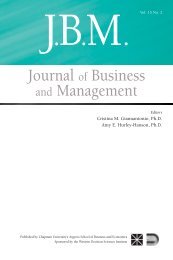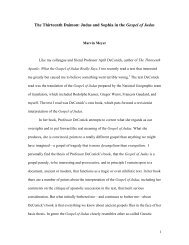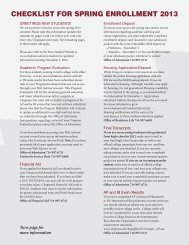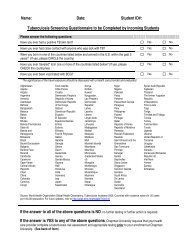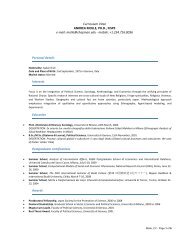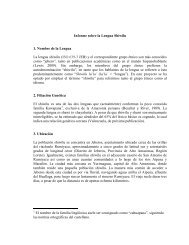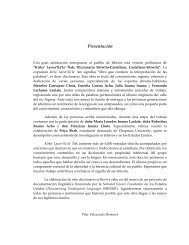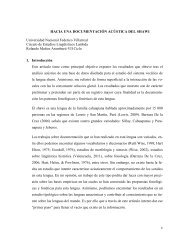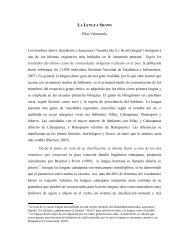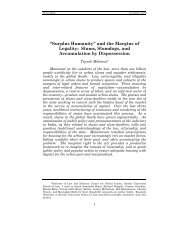Chapman Law Review - Chapman University
Chapman Law Review - Chapman University
Chapman Law Review - Chapman University
Create successful ePaper yourself
Turn your PDF publications into a flip-book with our unique Google optimized e-Paper software.
Do Not Delete 12/7/2011 2:17 PM<br />
20 <strong>Chapman</strong> <strong>Law</strong> <strong>Review</strong> [Vol. 15:1<br />
Bifurcation disclosure requirements are a positive benefit for<br />
state corporate governance. Until state corporate law, in<br />
particular Delaware, begins to reexamine its rules on board<br />
structure, federal securities laws are likely to continue to<br />
legislate disclosure requirements to address issues of board<br />
group think in decision-making. Bifurcation of the CEO and<br />
Chairman moves a bit closer to blurring the complementary<br />
balance between federal and state law on governance.<br />
CONCLUSION<br />
In 2003, Professor Roe 129 wrote an article in which he argued<br />
that the real competition in corporate governance was not<br />
between Delaware and other states, but between Delaware and<br />
federal securities laws. 130 I agree with Professor Roe‘s<br />
observation. Federal rules continue to use disclosure mandates<br />
to affect behavior of corporate managers in their relationship<br />
with shareholders. The politics of responding to corporate crises<br />
is unlikely to see Congress or the SEC limit its role in effecting<br />
corporate governance changes for the public corporation.<br />
Congress sought to address specific corporate failures in the D-F<br />
Act—governance failures such as highly paid executive<br />
compensation in the wake of corporate failures, compensation<br />
committees rewarding executives for taking excessive risk, and<br />
directors seemingly unwilling to engage in critical analysis of the<br />
CEO or management‘s decisions. 131<br />
Do the new federal disclosure requirements on corporate<br />
governance benefit shareholders under state law? I believe the<br />
short answer to this question is yes; however, I am not convinced<br />
that the disclosure requirements can achieve improvements in<br />
board leadership without a corresponding shift in state corporate<br />
governance. The new rules will force the boards of public<br />
companies to engage in greater oversight of risk and disclose<br />
such risk. More importantly, the disclosures on board leadership<br />
structure will likely increase the overall independence of the<br />
board, allowing for improvements in frank discussion among<br />
board members. Where state fiduciary duty does not address or,<br />
as in Delaware, varies depending on the stage of shareholder<br />
litigation, shareholders are likely to face litigation disadvantages<br />
in a demand futility analysis for independence. State fiduciary<br />
129 Professor Mark Roe is a noted scholar, who writes in the areas of corporate law<br />
and governance. He is the author of Strong Managers Weak Owners: The Political Roots<br />
of American Corporate Finance. Professor Roe is currently a professor at Harvard <strong>Law</strong><br />
School.<br />
130 Roe, supra note 4, at 592.<br />
131 McCafferty, supra note 121.



